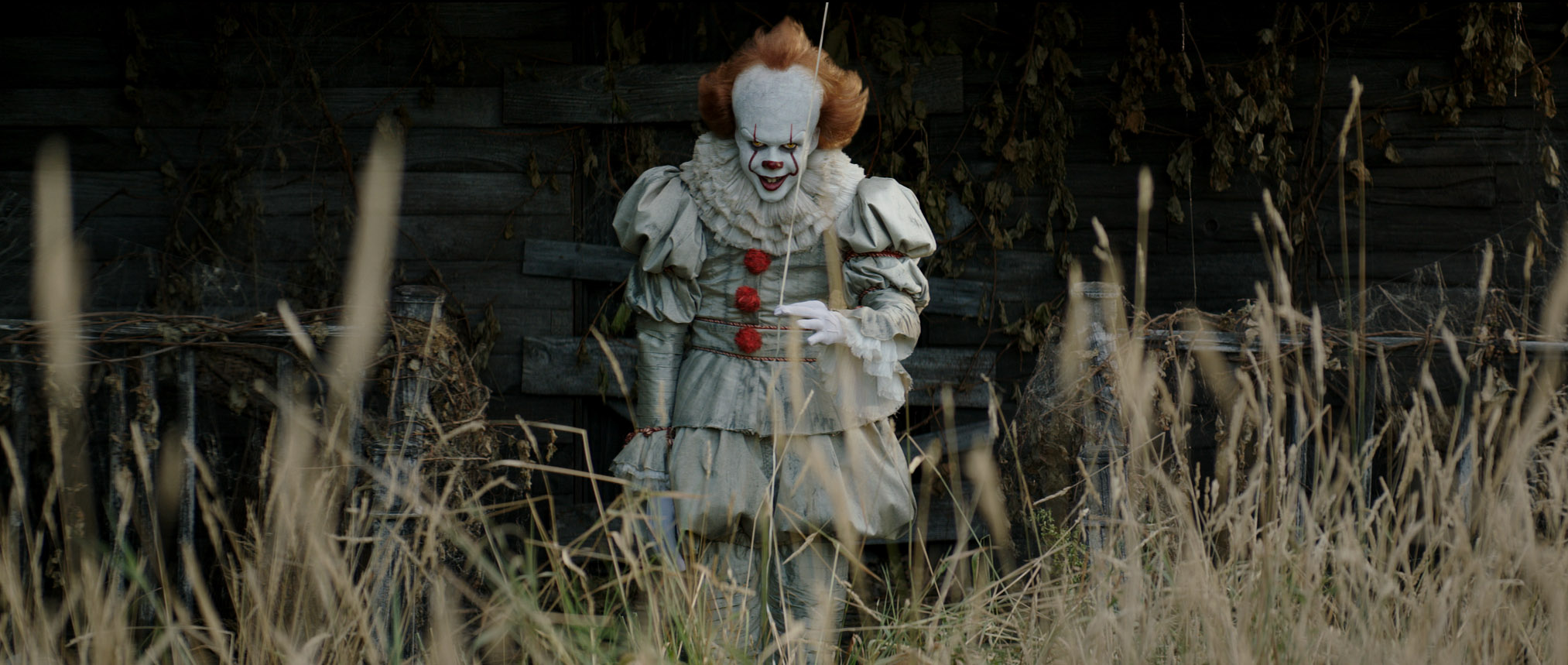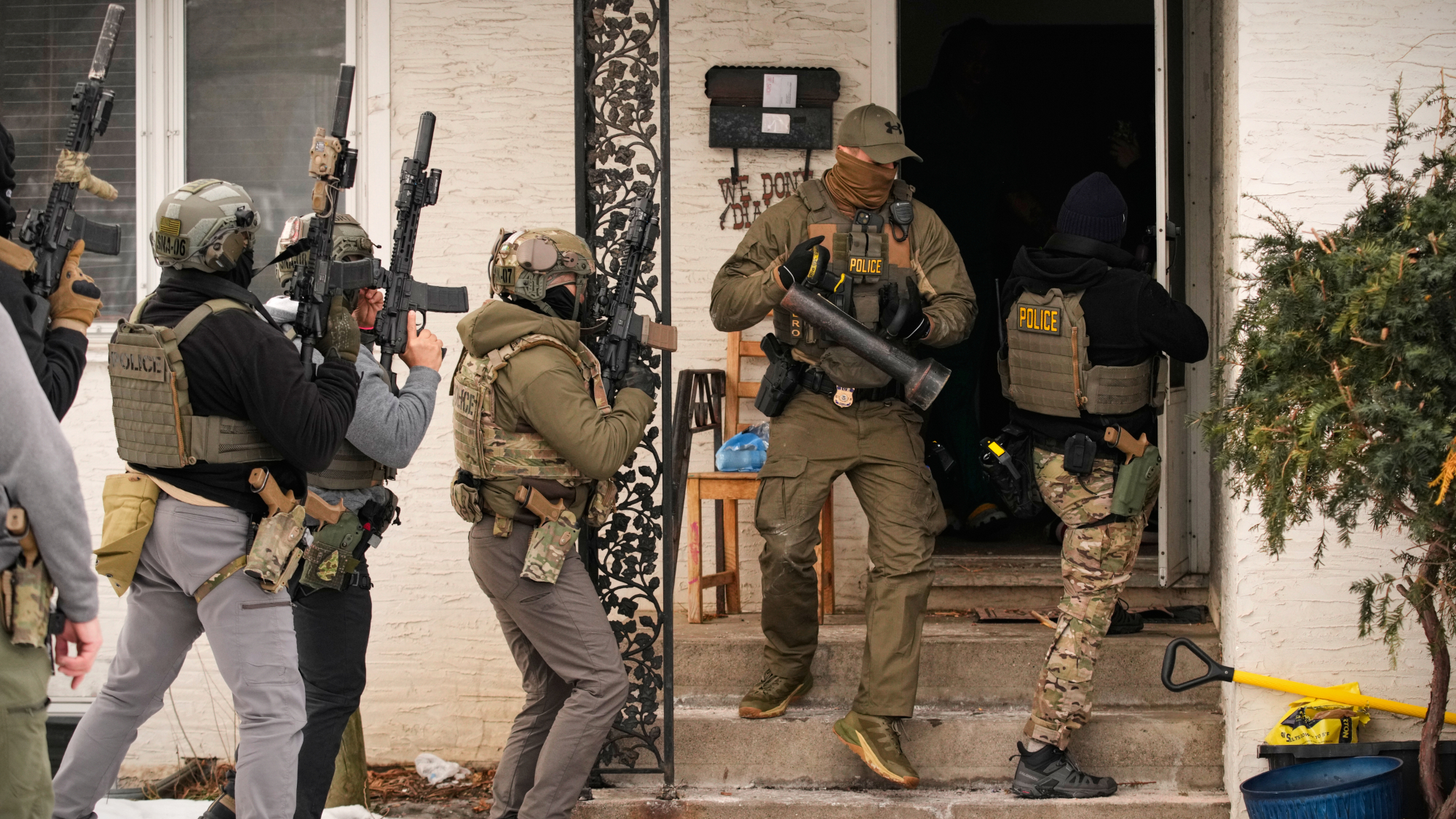The juvenile perspective of It
How the new film ditched the adults in Stephen King's novel — and the horror


Thirty years after Stephen King's It was first published, the novel has finally become a feature film. And in the process, It has gotten quite a bit younger.
Stephen King's behemoth of a book is a horror story, but it's also about the bonds formed in childhood between seven outcast children who call themselves the Losers Club. The novel toggles back and forth between the Losers as blood-bonded 11-year-olds and as scattered adults approaching 40. But the new and much-anticipated movie adaptation, succumbing to both the novel's intricate but cinematically unwieldy level of detail and a movie studio's desire for franchising, only features the kids. There's fun in the way the movie gets its young friends together faster than the hundreds of pages it takes in the book. But this approach also takes a toll on the horror.
After an unsettling prologue, taken almost exactly from the novel, in which Bill (Jaeden Lieberher) loses his little brother Georgie (Jackson Robert Scott) to a monstrous clown peeking out of a sewer during a rainstorm, the movie wastes no time in introducing Bill's buddies Richie (Finn Wolfhard from Netflix's Stranger Things), Eddie (Jack Dylan Grazer), and Stan (Wyatt Oleff), and having them intersect with new kid Ben (Jeremy Ray Taylor), tough girl Beverly (Sophia Lillis), and farm boy Mike (Chosen Jacobs). Eventually, they realize they've all had encounters with the shapeshifting monster that took Georgie and band together to try and fight it.
The Week
Escape your echo chamber. Get the facts behind the news, plus analysis from multiple perspectives.

Sign up for The Week's Free Newsletters
From our morning news briefing to a weekly Good News Newsletter, get the best of The Week delivered directly to your inbox.
From our morning news briefing to a weekly Good News Newsletter, get the best of The Week delivered directly to your inbox.
That's a simplification of the plot — but it's a simplification the movie makes too, by necessity. Without the adult half of the story, the film version of It becomes a riff on a type of narrative the book helped to popularize: the coming-of-age suburban adventure. This kind of story is closely associated with Steven Spielberg because of E.T., but that's really Spielberg's only crack at that material. He produced the far inferior The Goonies, but a different Steve had just as strong a hand in this sub-sub-genre: It was first published just weeks after the release of Stand By Me, itself the movie version of King's novel The Body and one that utilizes a similar framework of retro bonding, minus the more overt horrors.
The movie It also pushes the action forward, acknowledging that the distance between the book's 1958 and the movie's mid-'80s is roughly the same as today and the book's original present. So now Bill and his friends are riding bikes around a small Maine city in 1989 — and the sequel will presumably be set in 2017 or so. This half-clever, half-inevitable switch does more to drive home the passage of time than anything the bifurcated story can do in this form.
As far as decades-later invocations of this era go, the Losers Club group dynamic is funnier and less of a pastiche than the Stranger Things kids — if not quite as hilarious and endearing as the Super 8 kids. But when director Andrés Muschietti sends his camera drifting through the halls of their high school on the last day of school, catching the boys chattering with excitement, Beverly facing off against mean girls, and Ben fumbling through an exchange of pleasantries with Beverly, It crackles — moreso, it turns out, than during Muschietti's spooky set pieces.
Both the horror bits and the human story use a similar technique, but it pays off differently. The rush into adolescent friendship creates instant camaraderie, inviting the audience into the Losers Club, while the suspense sequences often feel impatient in their desire to cut to the chase or, if you will, to the scary clown. Visualizing King's sense of dread rotting a town from the inside is no easy task, but it's still disappointing to see Muschietti, who did such a masterful job on the horror movie Mama, turn the whole thing into an expanded haunted house. Even the cinematography feels more expressive in the scenes with less clown-clamor.
A free daily email with the biggest news stories of the day – and the best features from TheWeek.com
This It is creepy, sure, especially for people who don't watch a lot of horror movies. But those who do will recognize a lot of the same tricks and signifiers: creaking floorboards, filthy hair, clown dolls, the supernatural antagonist moving with stuttery jolts. The Conjuring famously received an R rating not for any gore or extreme violence, but just for being really scary. It is the opposite: It has an R because it's bloody, not because it's terrifying.
What keeps the movie running is those kids, particularly the mouthy Richie, who Wolfhard makes funnier than King's version; Ben, played with puppy-dog soulfulness by Jeremy Ray Taylor; and Beverly, who Lillis gives a pluck not always fully present on the page. Mike, who makes a later entrance to the book, isn't so lucky; his character suffers the most by delaying the adult stuff into a wholly separate film.
Put together, the focus on the kids both redeems It through charm and robs the movie of a greater power. Unlike in the book, the scares don't have much weight — they say BOO! and they dissipate. The gimcrack spookhouse atmosphere morphs It from a sprawling text about adolescent and preadolescent (and adult) anxieties into a self-conscious riff on familiar iconography — a likably runty little brother to Stand By Me, instead of an expansion on that story's bittersweet ideas. It shunts its dread off to the closing title card, teasing a sequel that might get really scary.
Jesse Hassenger's film and culture criticism has appeared in The Onion's A.V. Club, Brooklyn Magazine, and Men's Journal online, among others. He lives in Brooklyn, where he also writes fiction, edits textbooks, and helps run SportsAlcohol.com, a pop culture blog and podcast.
-
 Migrant death in ICE custody ruled homicide
Migrant death in ICE custody ruled homicideSpeed Read Geraldo Lunas Campos, 55, died of asphyxia, the coroner said
-
 Magazine printables - January 23, 2026
Magazine printables - January 23, 2026Puzzle and Quizzes Magazine printables - January 23, 2026
-
 ICE memo OKs forcible entry without warrant
ICE memo OKs forcible entry without warrantSpeed Read The secret memo was signed last May
-
 Walter Isaacson's 'Elon Musk' can 'scarcely contain its subject'
Walter Isaacson's 'Elon Musk' can 'scarcely contain its subject'The latest biography on the elusive tech mogul is causing a stir among critics
-
 Welcome to the new TheWeek.com!
Welcome to the new TheWeek.com!The Explainer Please allow us to reintroduce ourselves
-
 The Oscars finale was a heartless disaster
The Oscars finale was a heartless disasterThe Explainer A calculated attempt at emotional manipulation goes very wrong
-
 Most awkward awards show ever?
Most awkward awards show ever?The Explainer The best, worst, and most shocking moments from a chaotic Golden Globes
-
 The possible silver lining to the Warner Bros. deal
The possible silver lining to the Warner Bros. dealThe Explainer Could what's terrible for theaters be good for creators?
-
 Jeffrey Wright is the new 'narrator voice'
Jeffrey Wright is the new 'narrator voice'The Explainer Move over, Sam Elliott and Morgan Freeman
-
 This week's literary events are the biggest award shows of 2020
This week's literary events are the biggest award shows of 2020feature So long, Oscar. Hello, Booker.
-
 What She Dies Tomorrow can teach us about our unshakable obsession with mortality
What She Dies Tomorrow can teach us about our unshakable obsession with mortalityThe Explainer This film isn't about the pandemic. But it can help viewers confront their fears about death.
